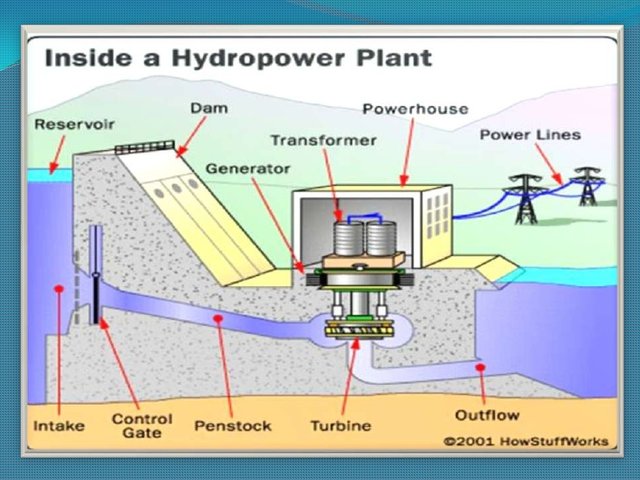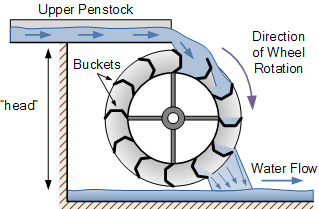
One upper reservoir, one lower reservoir. Water from the upper reservoir flows through a turbine or multiple turbines into the bottom reservoir while simultaneously being pumped back into the upper reservoir while flowing through a overshot waterwheel creating a constant flow of recirculating water.
Water flow can be adjustable to eliminate the need for power storage during off-peak times.
Energy created from the turbines and / or waterwheel could be used to power the pumps.
"Water released from the reservoir flows through a turbine, spinning it, which in turn activates a generator to produce electricity."
"The water may be released either to meet changing electricity needs or to maintain a constant reservoir level."
https://www.energy.gov/eere/water/types-hydropower-plants
"Water is moved from a source at lower elevation up to a higher elevation"
https://www.bechtel.com/services/water/hydroelectric-and-pumped-storage/
""pumped storage", which reuses the same water more than once."
https://www.usgs.gov/special-topic/water-science-school/science/hydroelectric-power-how-it-works?qt-science_center_objects=0#qt-science_center_objects
"Waterwheels are incorrectly regarded as being inefficient compared with turbines. Studies have shown that waterwheel efficiency can be in excess of 80% for overshot waterwheels and 75% for breastshot waterwheels [Muller 2004]. This in combination with a superior part-flow performance and lack of fine intake screening requirements can often result in very worthwhile overall energy capture."
https://www.british-hydro.org/waterwheels/
